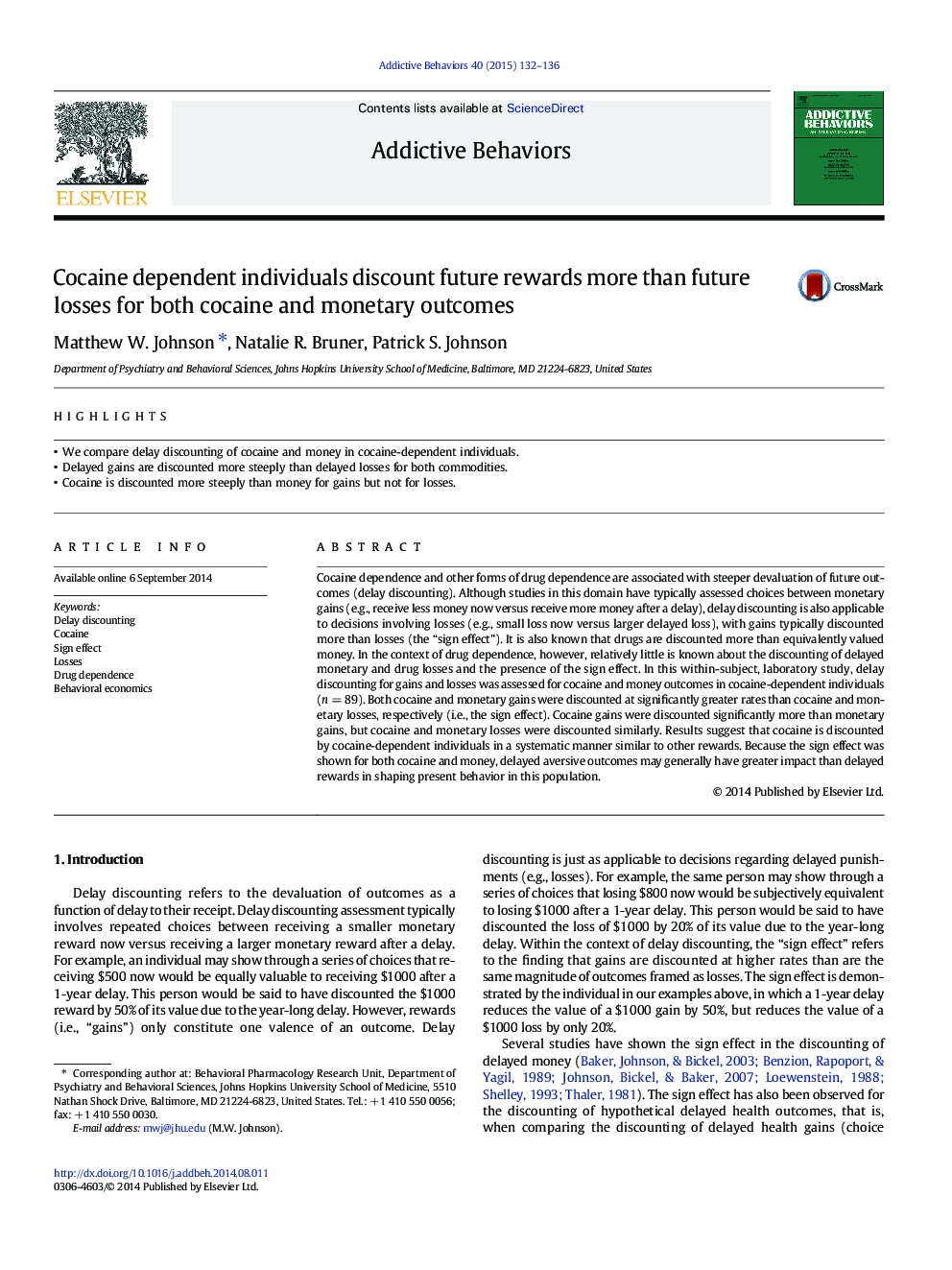| کد مقاله | کد نشریه | سال انتشار | مقاله انگلیسی | نسخه تمام متن |
|---|---|---|---|---|
| 7261277 | 1472531 | 2015 | 5 صفحه PDF | دانلود رایگان |
عنوان انگلیسی مقاله ISI
Cocaine dependent individuals discount future rewards more than future losses for both cocaine and monetary outcomes
ترجمه فارسی عنوان
افراد وابسته به کوکائین تخفیف های آینده را بیشتر از تلفات در آینده برای هر دو نتیجه کوکائین و پولی تخفیف می دهند
دانلود مقاله + سفارش ترجمه
دانلود مقاله ISI انگلیسی
رایگان برای ایرانیان
کلمات کلیدی
تخفیف تاخیر، کوکائین، علامت اثر، از دست دادن وابستگی به مواد مخدر، اقتصاد رفتاری،
موضوعات مرتبط
علوم زیستی و بیوفناوری
علم عصب شناسی
علوم اعصاب رفتاری
چکیده انگلیسی
Cocaine dependence and other forms of drug dependence are associated with steeper devaluation of future outcomes (delay discounting). Although studies in this domain have typically assessed choices between monetary gains (e.g., receive less money now versus receive more money after a delay), delay discounting is also applicable to decisions involving losses (e.g., small loss now versus larger delayed loss), with gains typically discounted more than losses (the “sign effect”). It is also known that drugs are discounted more than equivalently valued money. In the context of drug dependence, however, relatively little is known about the discounting of delayed monetary and drug losses and the presence of the sign effect. In this within-subject, laboratory study, delay discounting for gains and losses was assessed for cocaine and money outcomes in cocaine-dependent individuals (n = 89). Both cocaine and monetary gains were discounted at significantly greater rates than cocaine and monetary losses, respectively (i.e., the sign effect). Cocaine gains were discounted significantly more than monetary gains, but cocaine and monetary losses were discounted similarly. Results suggest that cocaine is discounted by cocaine-dependent individuals in a systematic manner similar to other rewards. Because the sign effect was shown for both cocaine and money, delayed aversive outcomes may generally have greater impact than delayed rewards in shaping present behavior in this population.
ناشر
Database: Elsevier - ScienceDirect (ساینس دایرکت)
Journal: Addictive Behaviors - Volume 40, January 2015, Pages 132-136
Journal: Addictive Behaviors - Volume 40, January 2015, Pages 132-136
نویسندگان
Matthew W. Johnson, Natalie R. Bruner, Patrick S. Johnson,
